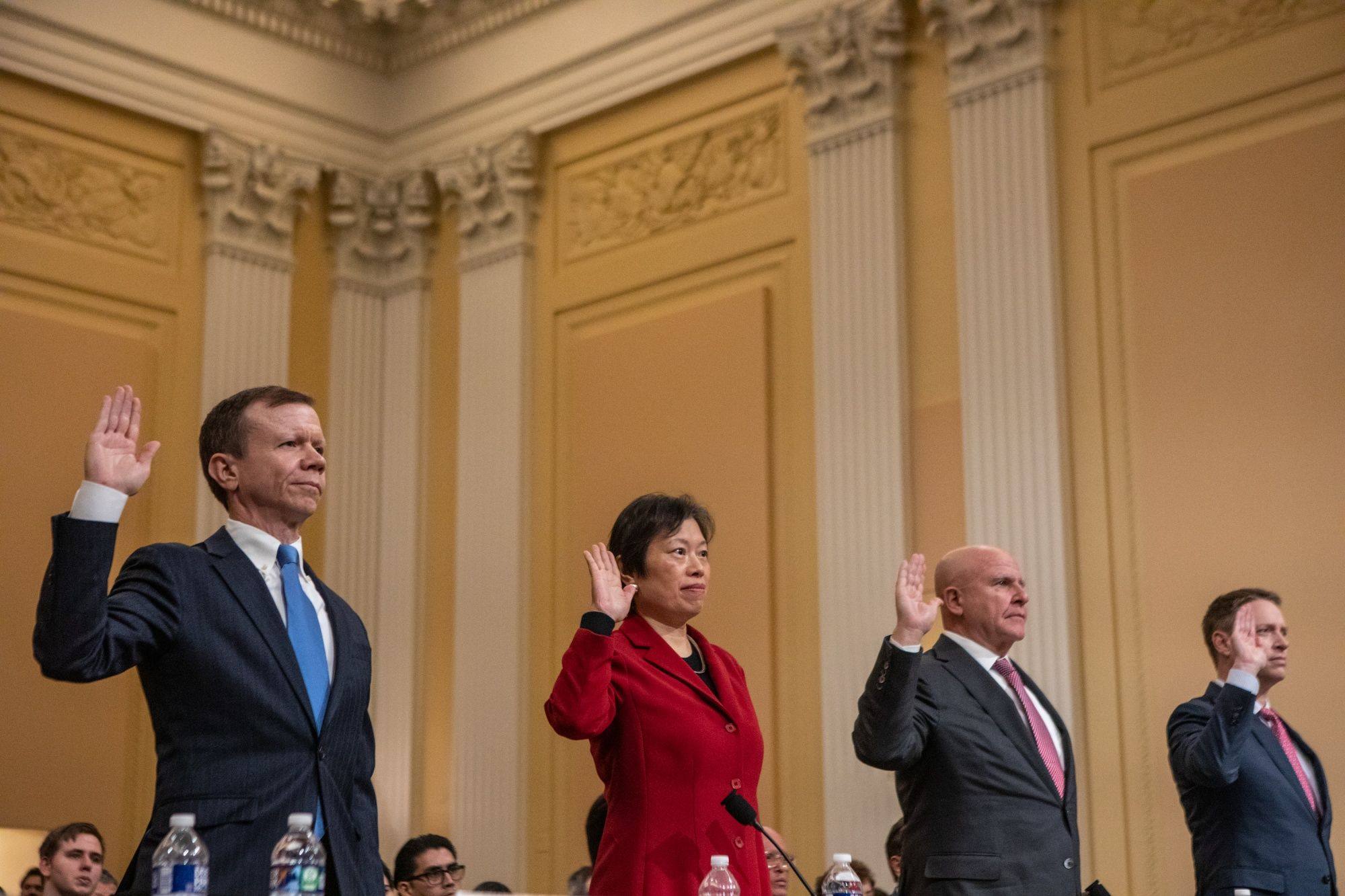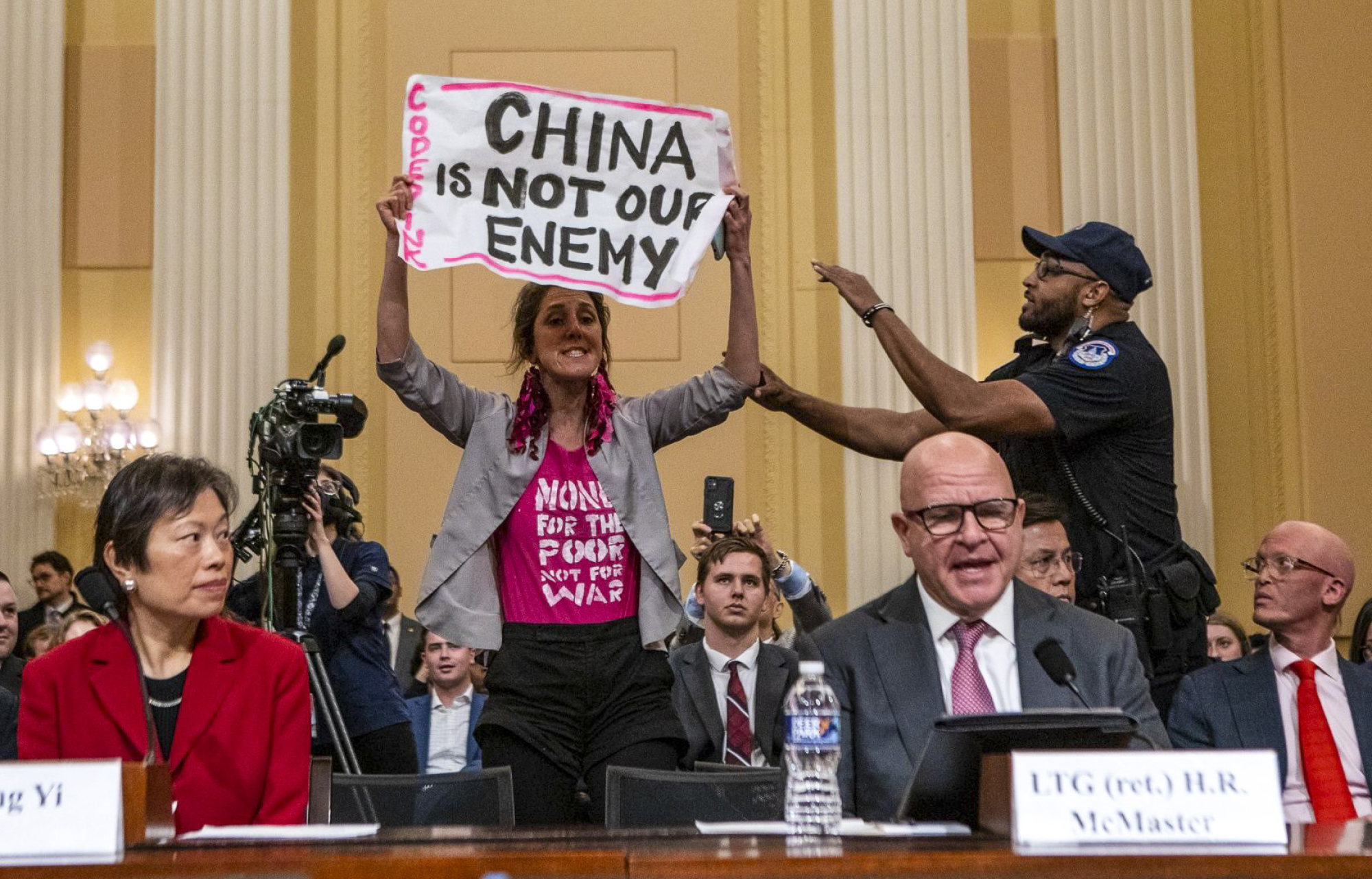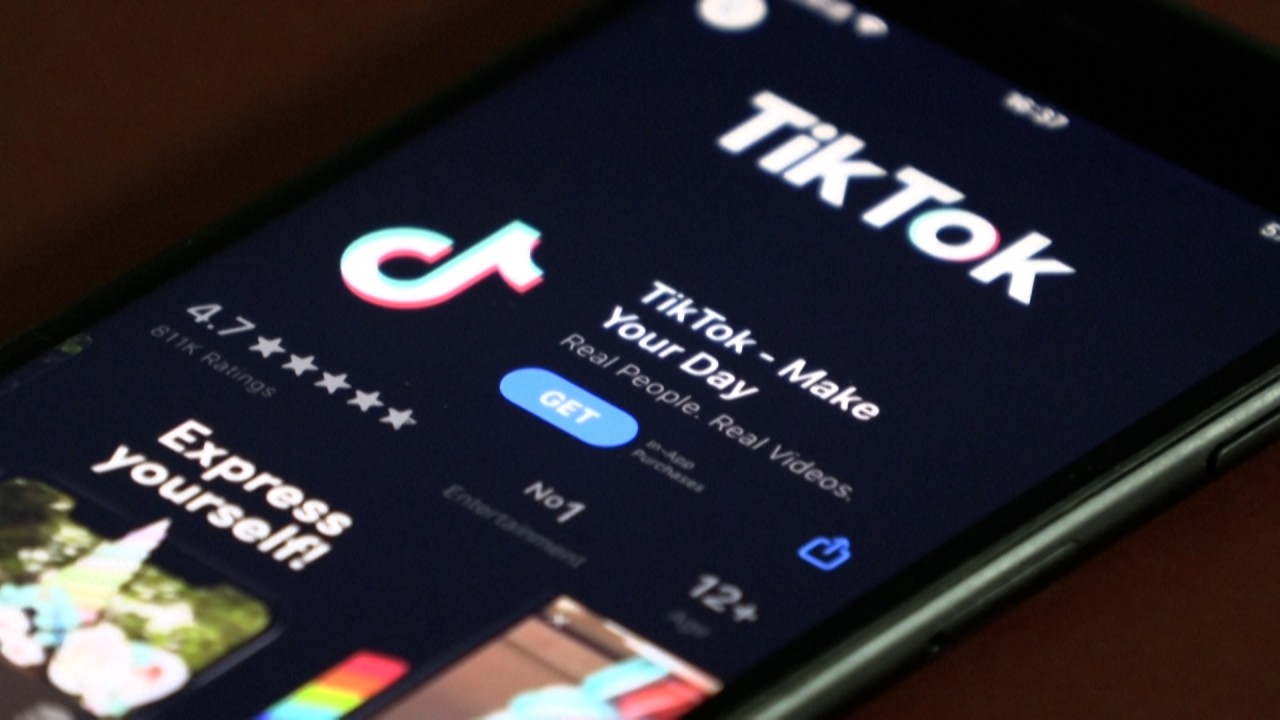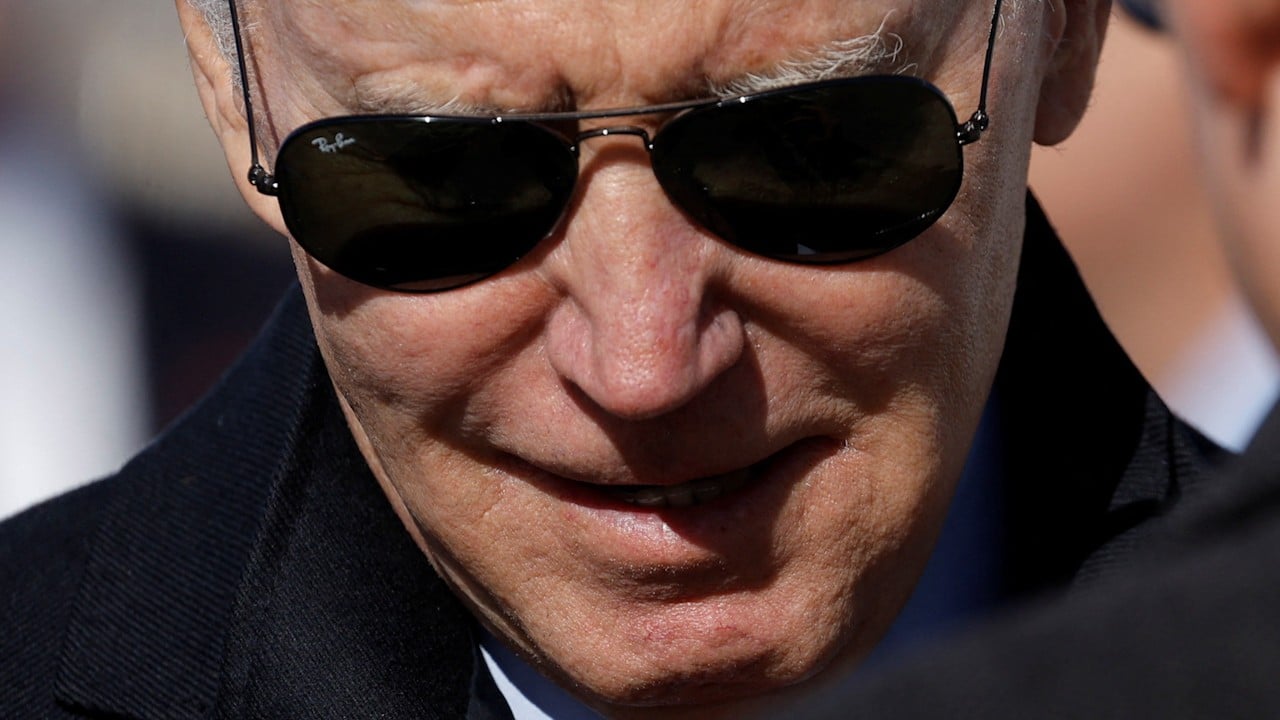
US House panel on China tackles human rights, TikTok and fentanyl in first hearing aimed at prime-time audience
- Former national security officials, trade group representative and Chinese activist among those questioned by bipartisan committee
- Committee chairman Mike Gallagher calls Beijing-Washington rivalry an ‘existential struggle’ during meeting meant to play to American public
“We do not want a war with [China] … we don’t want a clash of civilisations.”
The hearing, titled “The Chinese Communist Party’s Threat to America”, was scheduled for after working hours, with the intention of attracting a large domestic audience.
“What we’re trying to convey to our colleagues and the American people is why they should pay attention to and care about the threat posed by the CCP,” Gallagher said on Tuesday before the hearing.
Appearing in front of a panel of 13 Republicans and 11 Democrats, the four witnesses included two Trump administration officials – former deputy national security adviser Matthew Pottinger and former national security adviser Lieutenant General HR McMaster – as well as Tong Yi, a Chinese human rights advocate, and Scott Paul, president of the Alliance for American Manufacturing trade group.

The hearing opened with two videos. The first, prepared by committee staff, relayed accounts of domestic oppression by the Chinese government spanning as far back as the Cultural Revolution. The second, submitted by Pottinger, countered “myths” about the Chinese Communist Party and its intentions.
“The success that the Chinese Communist Party once enjoyed presenting itself as constructive, cooperative, responsible, normal, was one of the great magic tricks of the modern era,” Pottinger said.
Pottinger, a chief architect of the Trump administration’s confrontational approach to China, added that Beijing was engaging in “a classic example of dual messaging”: externally promoting a safe environment for foreign investment while internally emphasising the need to strengthen the party’s control over economic activity.
But as the second witness was speaking, two protesters – one identifying with anti-war group Code Pink – stood up with signs saying “China’s not our enemy” and “Stop Asian hate”.

Committee members Krishnamoorthi and Ritchie Torres, a Democrat from New York, repeated these concerns during the hearing, noting that it was unacceptable to question the loyalty of Asian-Americans.
“We must recognise that the CCP wants us to be fractious, partisan, and prejudiced,” Krishnamoorthi said.
Tong, a former secretary to prominent Chinese dissident Wei Jingsheng, spoke about her experiences under detention in China and cast China’s recent zero-Covid protests as part of a legacy of dissident movements.
“Bill Clinton did not have to sell out human rights to business interests by abruptly delinking the two in 2001,” she said.
Paul testified that engagement with China – and two decades of permanent normal trade relations – had “no real consequences” for what he called “Chinese misbehaviour”.
“The CCP demands the complicity of global business operating in China, and these firms have conformed. Big tech, Hollywood, sports leagues [and] retail legends all say the right things in America but are silent in China, bending the knee to the CCP,” he said, arguing for a domestic competitiveness agenda and a trade enforcement strategy.
McMaster, a retired three-star army general, spoke about the “unprecedented threat” posed by the Communist Party and pushed for increasing military support for Taiwan.
“Hard power matters,” he said. “There are really clear lessons from Russia’s reinvasion of Ukraine.”
Asked how the US could strengthen alliances with Pacific nations reluctant to choose sides between the US and China, McMaster replied, “That is not a choice between Washington and Beijing. It’s a choice between sovereignty and servitude.”
Pottinger, when asked, said he thought it was possible for China to pre-emptively attack the US.
“We know that the [People’s Liberation Army] is training for the likelihood that the US would be part of the fight, and that raises the escalatory pressure on China to try to eliminate US capabilities right there in the western Pacific to buy them time,” he said.
But efforts to counter the CCP should not alienate the Chinese people, he noted.
“We need to make it easier for Chinese people to connect with the outside world and see news and information flowing in safely without the digital panopticon of the Communist Party looking over their shoulder.”
China’s most important vulnerability was that “the party fears most of all its own people”, Pottinger said.
He urged keeping channels of communications open “to prevent Xi Jinping from making a grave miscalculation” but cast doubt on Beijing’s desire to collaborate with Washington to solve global issues such as climate change.
In a departure from the panel’s focus on critiquing China, Andy Kim, a Democrat from New Jersey, urged the United States to look inward at its own political system.
“The defining factor that will shape how we fare in this competition very much comes from this idea of will we, as a country, get our act together … can we heal this democracy?”
The House committee, established in January, cannot make or amend laws but has the authority to hold public hearings in line with its investigative functions. It is required to submit policy recommendations to standing committees by the end of 2023.
He closed the three-hour hearing on Tuesday by characterising the United States as “the good guys” in a story of “heroes and villains”.
“There’s no question in my mind, that we, America, are the good guys … even on our worst day, the rest of the world is still looking to us for leadership.”



